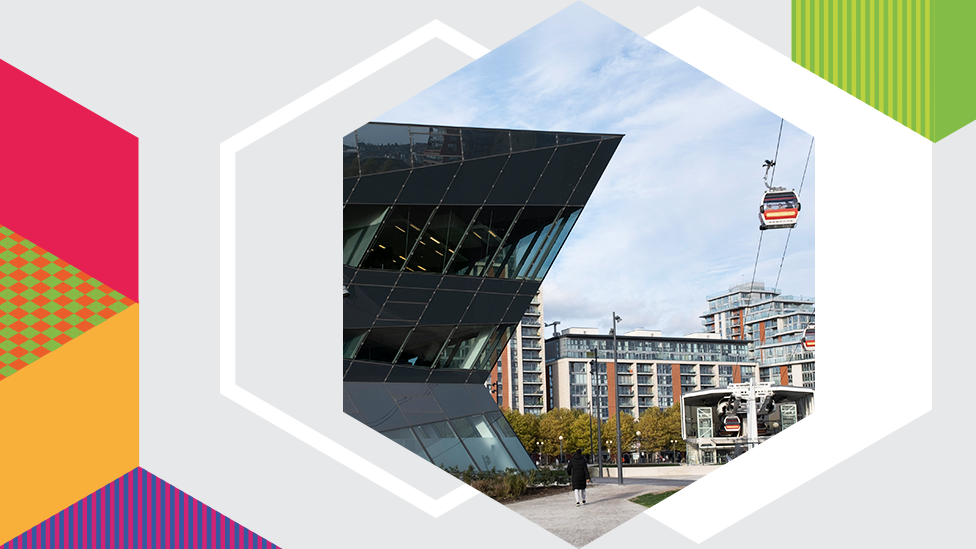Councils to watch in the 2024 local elections
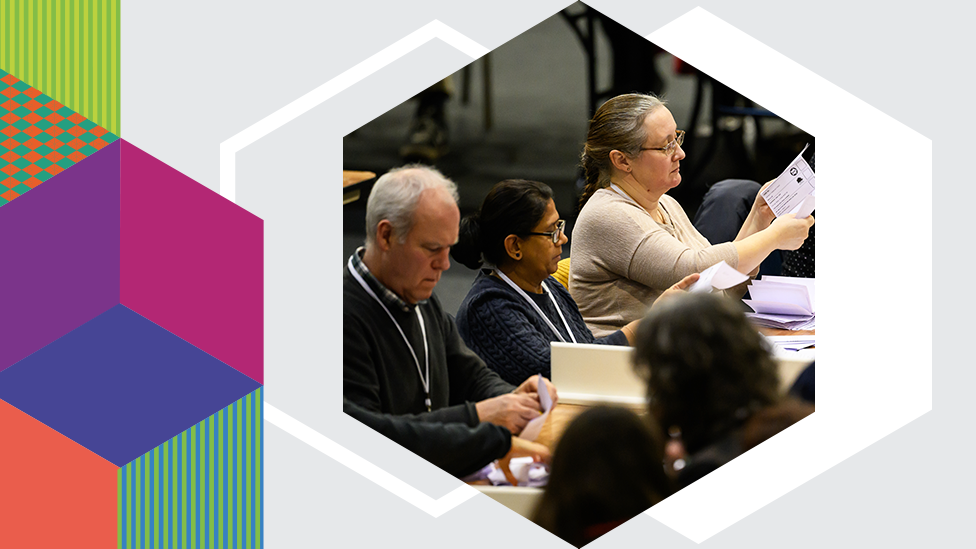
- Published
At the local elections on 2 May, 2,660 council seats are being contested across 107 areas, with Labour and the Conservatives defending almost 1,000 seats each.
Locally, politicians are campaigning on neighbourhood issues such as bins, potholes and housing.
But the results will provide indicators of the parties’ standing nationally, ahead of the next general election.
Here are some places to watch as the declarations come in.
Which Conservative councils are most at risk?
Conservative candidates face a tough time at this year’s council elections in England.
If recent national opinion polls are reflected in how people vote in local elections, they are at risk of losing many of the seats and councils they currently hold.
As ever with local elections, you have to look back to the last time the seats were contested to get a sense of how the parties are likely to fare.
Normally, councils hold elections on a four-year cycle but Covid meant the 2020 elections were delayed, so most of the seats up for election this year were last fought in 2021.
That was a very strong year for the Conservatives. The UK’s Covid vaccine rollout programme was going well and life was returning to normal.
They gained over 200 council seats and also won the Hartlepool by-election – an area that had returned Labour MPs since the 1960s.
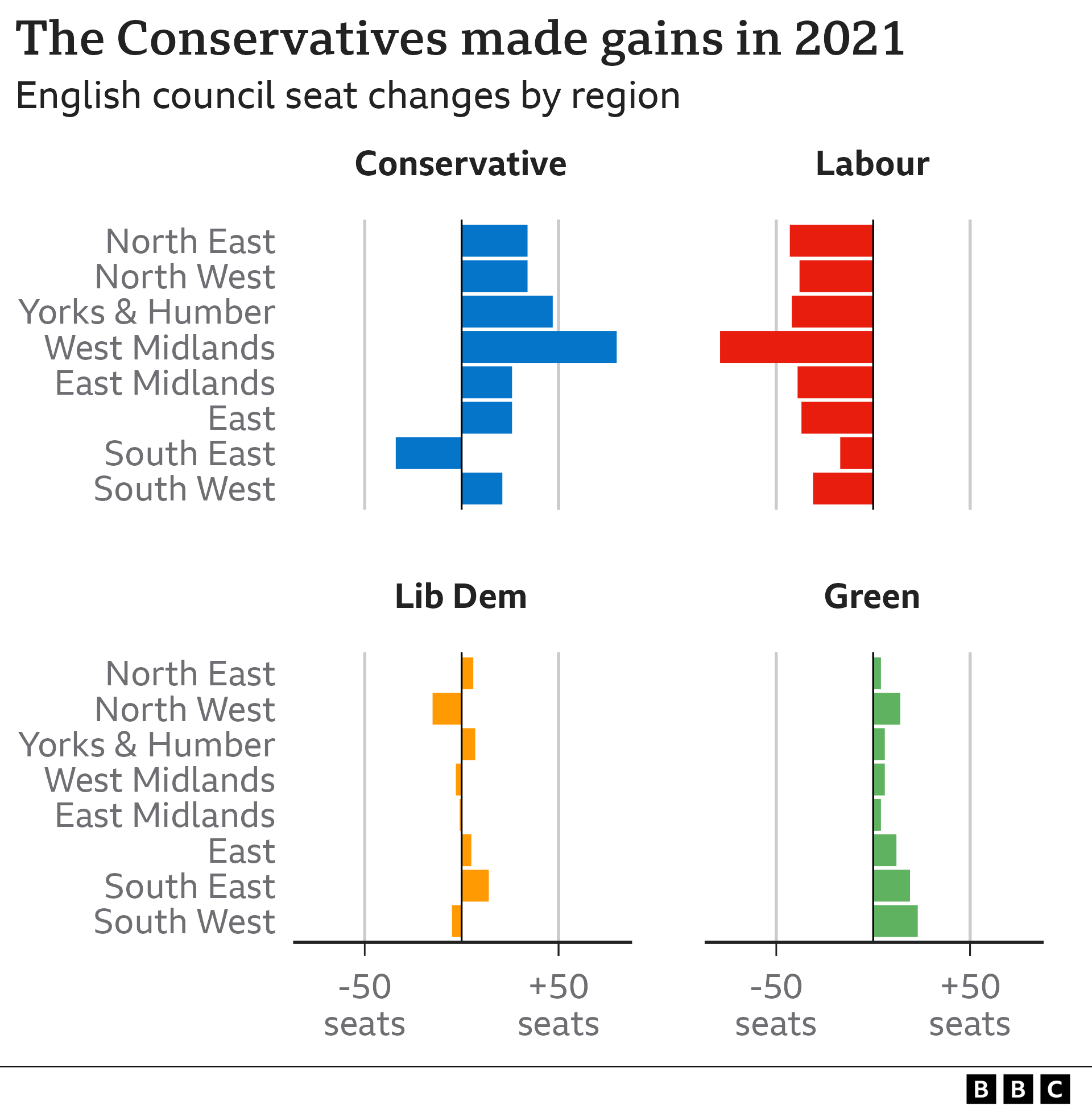
Since then, support for the party has dropped significantly and they’ve done much less well in council elections and parliamentary by-elections.
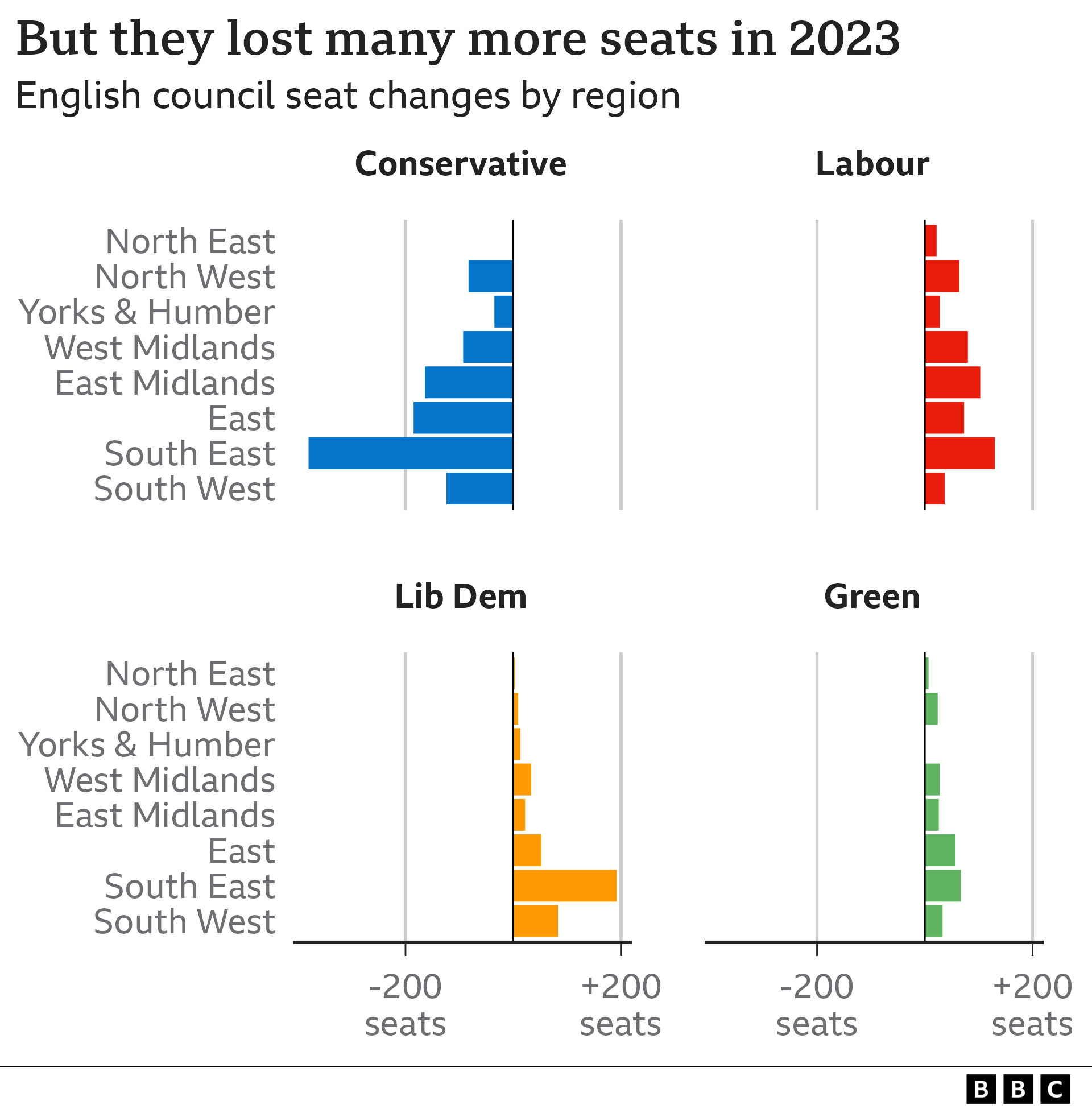
So they face an uphill battle to hold on to the seats they’re defending.
Councils where control could be at risk include Adur, in West Sussex, Basildon, in Essex, Gloucester and North East Lincolnshire.
Could the Israel-Gaza war affect Labour’s chances?
Labour’s very poor performance in 2021 provides them with an opportunity to win seats and councils, particularly where the Conservatives are their main opponents.
Potential gains include Redditch, in Worcestershire, Milton Keynes, Hartlepool and Harlow, in Essex.
In many places, Labour will also be looking ahead to the general election.
Some of the Labour-controlled councils with elections in May are also places with key target constituencies for the next UK general election, including Bury, in Greater Manchester, Crawley, in West Sussex, Stevenage, in Hertfordshire, and Swindon, in Wiltshire.
However, Labour may not find that everything goes its way. The party’s response to the Israel-Gaza war has been controversial among many of its own councillors.
Dozens of them have resigned to sit as independents in councils across England.
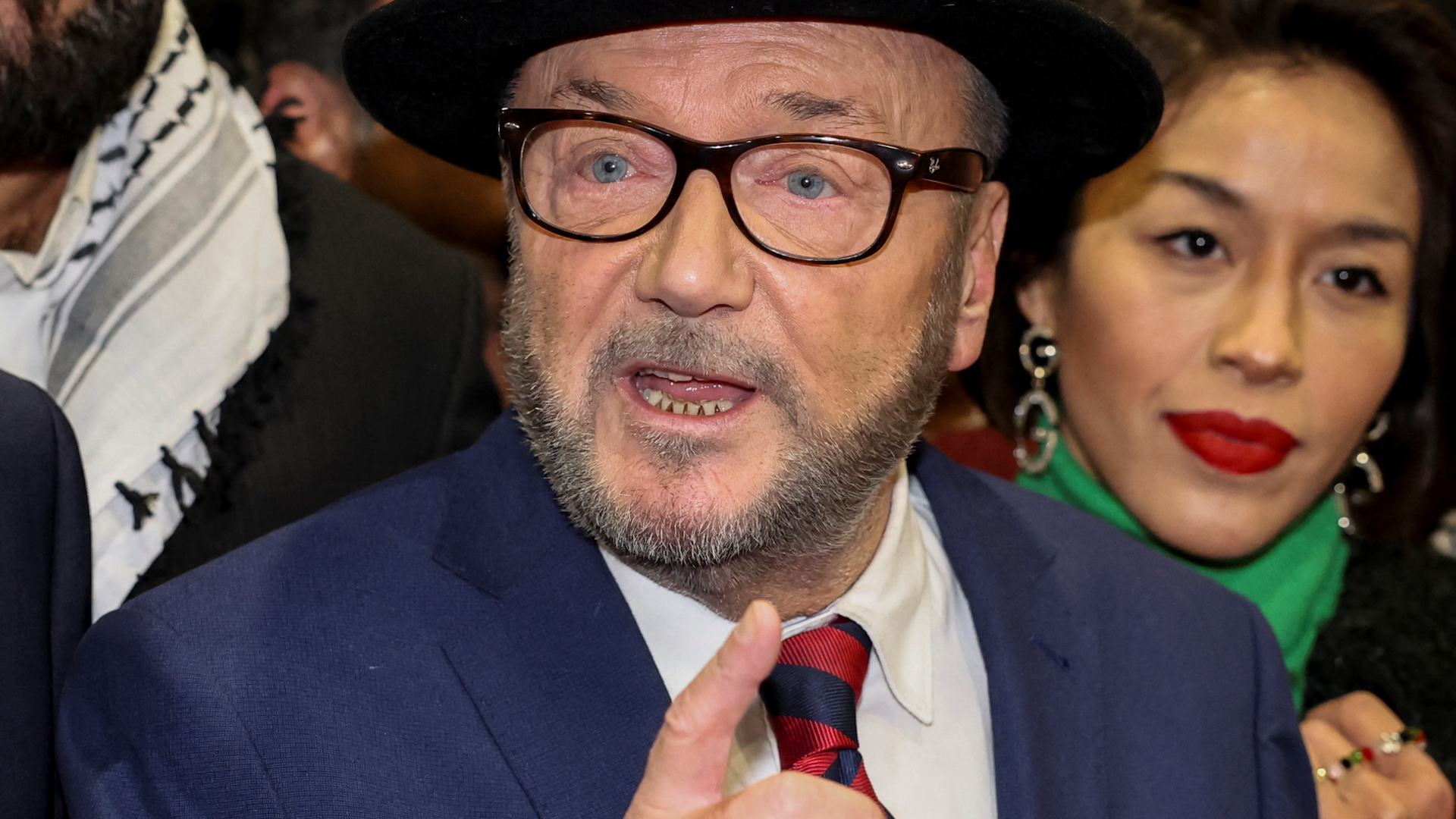
George Galloway's Workers Party of Britain are fielding candidates in Rochdale and other areas of Greater Manchester
In Oxford, that has seen them lose their overall majority and in Hastings it has probably put control out of reach.
It has also had a significant impact in Blackburn with Darwen and Burnley in Lancashire, Kirklees, in West Yorkshire, and Walsall in the West Midlands.
A further related problem is that the party now faces a new challenge for some of the seats it is defending because of this issue - sometimes from independent candidates but also, in a few places, from George Galloway’s Workers Party of Britain.
He returned to the House of Commons in the Rochdale by-election in February. His party has candidates in most of the Rochdale wards and in a few other places, mostly in and around Greater Manchester.
Which councils are the Liberal Democrats targeting?
Like Labour, the Liberal Democrats will have half an eye on the general election.
They’ve done strikingly well in recent local elections in parts of the south of England that have traditionally been strongly Conservative.
In these so-called blue wall areas they’re also hoping to pick up parliamentary seats.
Councils where they will be looking for a strong performance include Woking and Mole Valley in Surrey – councils they already hold – and Elmbridge, in Surrey, Wokingham, in Berkshire, and West Oxfordshire, which are currently hung, meaning no party has an overall majority.
Other places where the Liberal Democrats are within striking distance of an overall majority include Portsmouth and Stockport – both councils they used to control before they went into coalition government in 2010.
However, in both of those councils, the rise of independent groups has made it harder for any party to win outright.
Could the Greens win control of another council?
The Green Party has been gaining council seats in England for years and last year won its first ever overall majority in Mid Suffolk.
It will be hard for the Greens to take outright control of another council but they start as the largest party in Bristol and the second largest in several councils including Norwich, Reigate & Banstead in Surrey, Solihull, in the West Midlands, and Worcester.
Reform UK: Could the party win seats?
Reform UK have seen a big jump in support in recent months, according to the polls, but they don’t have much of a record in local government and have only around 320 candidates at these elections so it’s going to be hard for them to make a significant national breakthrough.
Places where they are contesting all or most of the seats include Bolton, in Greater Manchester, Hartlepool, in County Durham, Plymouth, in Devon, and Sandwell, in the West Midlands.
These are also councils where UKIP used to hold seats so they could be places to look out for potential Reform UK gains.
When will we know the results?
In a general election, all but a handful of results are known by the following morning. In local elections, the process takes a little longer.
While many local election results will be announced overnight into Friday 3 May, more are expected to follow throughout the day and a few over the weekend.
Related topics
- Published2 May 2024
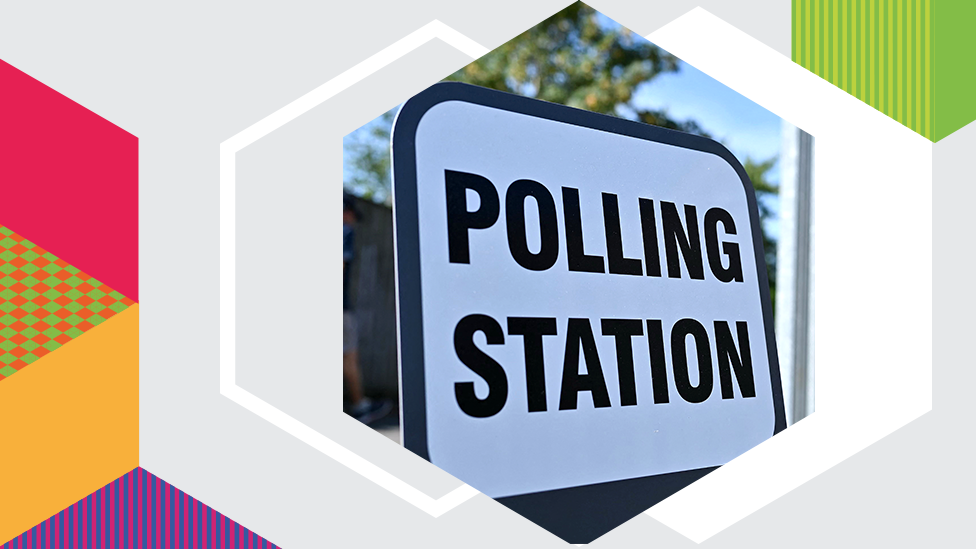
- Published7 May 2024

- Published2 April 2024
